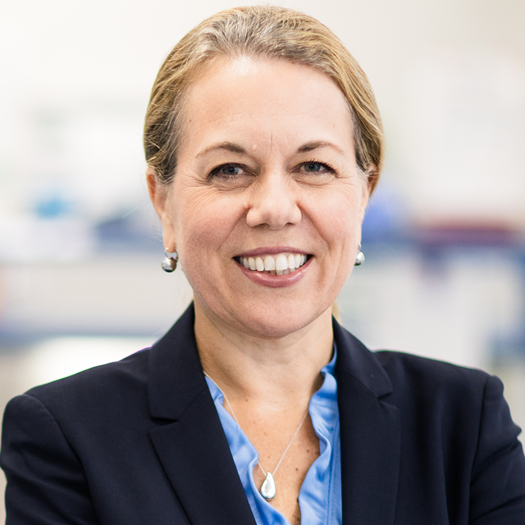Dr. Catherine Bollard’s career has taken her around the world and through multiple disciplines in medicine. A native of New Zealand, Dr. Bollard earned her Bachelor of Medicine, Bachelor of Surgery, and Doctorate in Medicine from the University of Otago, before holding appointments in London and in Texas. Through her medical training, Dr. Bollard became an expert in the field of hematology, bone marrow transplant, and cell therapy. This expertise and overall experience in immunology ultimately led her to focus on cancer research, where she has been a leader in the field of strengthening weakened immune systems using adoptive cell therapies.
In 2000, Dr. Bollard moved to the United States to develop T-cell therapies for cancer, with a particular focus on the Epstein-Barr virus (EBV). She has spent over two decades working on targeting EBV and similar viruses that affect bone marrow transplant patients. Ten years ago, an HIV physician from the University of North Carolina contacted Dr. Bollard, to ask if she had considered using her experience and research on virus-killing cells for patients after transplant in persons living with HIV (PLWH). And thus began her prolific work and research in the field of HIV/AIDS, where she is currently focused on developing T-cell therapies for PLWH. She is also working on protocols for people on antiretroviral therapy – individuals who are both HIV positive and have cancer – and multiple other protocols to use novel cell therapies as cure strategies. She has a particular focus on developing therapies in the safest and most efficacious way to cure patients and eradicate the virus.
Today, Dr. Bollard is the Director of the Center for Cancer and Immunology Research and Director of the Program for Cell Enhancement and Technologies for Immunotherapy at the Children’s National Research Institute (CNRI). She is also a Professor at the George Washington University (GWU) in the Departments of Pediatrics and Microbiology, Immunology, and Tropical Medicine. Dr. Bollard was invited to work with the DC CFAR on HIV cure research when she was recruited to CNRI and GWU in 2013 and she now leads the HIV Cure Scientific Working Group (SWG). Dr. Bollard's contributions to the HIV Cure SWG emphasize the innovation of her novel idea of applying important strategies learned from cancer research to cure HIV.
Throughout her research, Dr. Bollard stresses how necessary collaboration with the community is in order to successfully combat HIV and other illnesses. “We need strong partnerships with the community,” says Bollard, “and the DC CFAR is so crucial to bring diverse groups together- scientists, clinicians, and community- to develop successful HIV cure strategies.”


